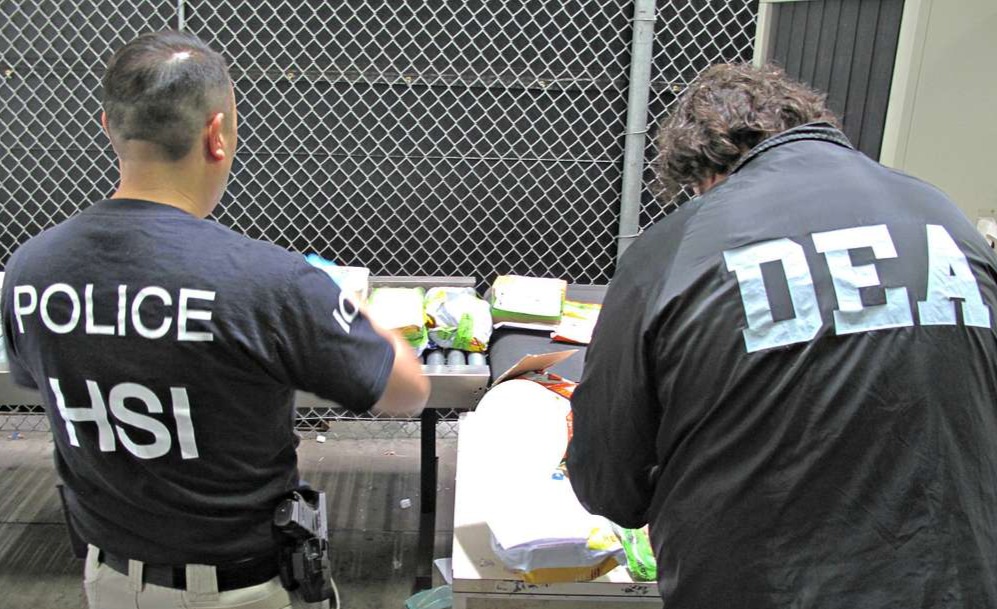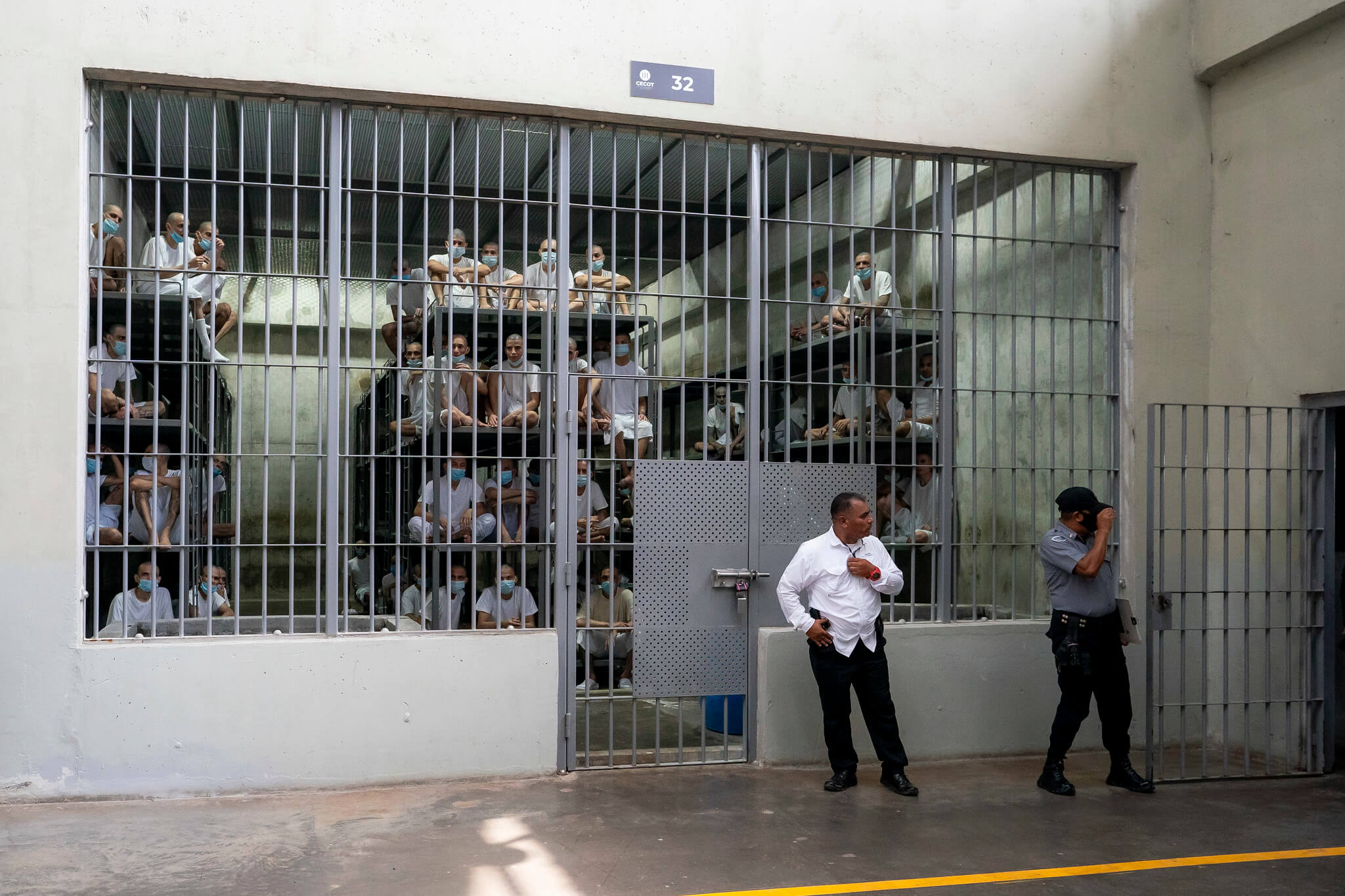Today's Headlines and Commentary
Foreign Policy informs us that Homeland Security Secretary John Kelly and Secretary of State Rex Tillerson will meet with Mexican President Enrique Peña Nieto this week to discuss Trump’s immigration plan, outlined in two new executive orders and in DHS memos released yesterday.
Foreign Policy informs us that Homeland Security Secretary John Kelly and Secretary of State Rex Tillerson will meet with Mexican President Enrique Peña Nieto this week to discuss Trump’s immigration plan, outlined in two new executive orders and in DHS memos released yesterday. Trump has seriously strained relations with Mexico, whose cooperation will be instrumental in implementing changes to immigration policy. Mexico has deported more Central Americans than the United States back to the violence-ridden countries of the so-called “Golden Triangle”—Guatemala, Honduras, and El Salvador—which are the primary areas of illegal immigration to the United States.
Politico writes that Trump’s new national security adviser, Army Lieutenant General H.R. McMaster, will need to be confirmed by the Senate in his new role because of his active-duty status. While McMaster does not need Senate confirmation to serve as national security adviser, when three- and four-star active duty generals and admirals move to a new position, they must be reconfirmed by the Senate in that rank for the new position. McMaster could either retire from active duty or take on the job as a two-star general if he wishes to avoid confirmation.
The New York Times examines how Trump’s appointment of McMaster as national security adviser creates a powerful troika of senior officers who served in Iraq in Cabinet-level positions within the Trump administration, with the others being Defense Secretary James Mattis and Secretary of Homeland Security John Kelly.
The Hill informs us that Secretary Mattis has requested in a memo that Pentagon leaders, including his acting deputy Robert Work, develop a plan to improve support of cyber operations and information management. The memo instructs officials to address several reforms put forward in the NDAA for Fiscal Year 2017 signed by then-President Obama in December, including plans to boost the military’s cyber operations. Mattis requested that the initial plan be on his desk by February 27th.
Der Spiegel tells us that Germany is struggling under mounting U.S. pressure for NATO member states to pay their “fair share” to support the alliance. While the United States sees Germany as the economic powerhouse of Europe, many in Germany are skeptical of the 2 percent GDP spending target, and its neighbors have long been wary, even fearful, of a militarily powerful Germany based on past history. German Defense Minister Ursula von Leyen is now working to muster the political will to approve increased NATO spending and keep the U.S.-Germany relationship on an even keel.
Newsweek reports that NATO jets have intercepted Russian bombers over the Baltic Sea twice in one week, according to the Lithuanian government. The increase in Russian flyovers into the airspace of Lithuania, Estonia, and Latvia since the annexation of Crimea has unnerved the Baltic states, which suspect that Russia may have similar designs on their territory. NATO jets scrambled the bombers into Russian airspace both times.
NBC News tells us that Amnesty International’s annual report “The State of the World’s Human Rights,” describes 2016 as “the year when the use of ‘us vs. them’ narratives of blame, hate, and fear took on a global prominence to a level not seen since the 1930s.”. Among those named as “wielding a toxic agenda that hounds, scapegoats and dehumanizes entire groups of people,” were Hungarian Prime Minister Viktor Orban, Turkish President Recep Tayyip Erdogan, Philippines President Rodrigo Duterte, and U.S. President Donald Trump. Amnesty described the latter’s “poisonous” rhetoric during the 2016 U.S. presidential election as emplary of “the global trend of angrier and more divisive politics.” The full report can be found here.
U.S.-backed Iraqi army forces outside Mosul are preparing to storm an airport and nearby military base to push into the western portion of the city, according to Reuters. Iraqi federal police and elite interior ministry units have made rapid progress towards western Mosul in a sweep from the south through stony desert terrain to prepare for the offensive. Iraqi forces started to build their positions in a hilltop village above the airport after fighting their way with helicopter gunships and rocket-propelled grenades. The BBC has more.
The Guardian tells us that a suicide attack near the city of Mosul on Monday was carried out by a British former Guantanamo detainee who was paid £1 million in compensation by the British government after his release. Jamal al-Harith, who was born Ronald Fiddler and went by the nom de guerre of Abu-Zakariya al-Britani, was a Muslim convert from Manchester who was taken to Guantanamo after being discovered in a prison in Afghanistan in early 2002, where he had been placed by the Taliban for being a suspected British spy. He was finally released in 2004, following lobbying by then-Home Secretary David Blunkett, who promised that he would not be “a threat to the security of the British people.”
The Times writes that the United Nations announced yesterday that the son of former Libyan dictator Muammar al-Qaddafi did not receive a fair trial in Libya and should be should be tried for war crimes in the International Criminal Court in The Hague. But Seif al-Islam el-Qaddafi’s current whereabouts remain unknown. Though a court in Tripoli convicted Qaddafi and sentenced him to death, he was not in the court’s custody, but in the hands of a militia group that subsequently let him go as part of amnesty decree issued by the Libyan government. He has not been seen since.
Reuters notes that China has nearly finished building almost two dozen structures on artificial islands in the South China Sea that appear to be designed to house long-range surface-to-air missiles. U.S. officials could consider building of the structures on the Subi, Mischief, and Fiery Cross reefs, which are part of the disputed Spratly Islands, as military escalation. A Pentagon spokesman said that the United States remains committed to “non-militarization of the South China Sea,” and urged all claimants to take actions consistent with international law.
The BBC writes that Malaysian police have named a senior North Korean embassy official they wish to question in connection with the assassination of Kim Jong Nam, the estranged half-brother of North Korean leader Kim Jong Un. Hyon Kwang Song, the second secretary of the North Korean embassy in Kuala Lumpur, is one of three North Koreans sought by Malaysian authorities in connection with the murder. The chief of Malaysian police has written to the North Korean ambassador asking for his cooperation in turning over Hyon and two other suspects, and has said that if the ambassador does not cooperate, “we will compel them to come to us.”
ICYMI: Yesterday, on Lawfare
Jordan Brunner provided background on newly-appointed national security adviser H.R. McMaster.
J. Dana Stuster updated the Middle East Ticker.
Chris Mirasola examined China’s proposed changes to its maritime safety law and compliance with UNCLOS.
John Bellinger and Andy Wang described the perhaps still-lingering circuit split over what “touch and concern,” means in the Alien Tort Statute, despite the Supreme Court’s decision in RJR Nabisco.
Chris summarized the DHS implementation memos on Trump’s immigration executive orders.
Bob Bauer provided his thoughts on the proper role of the White House Counsel.
Email the Roundup Team noteworthy law and security-related articles to include, and follow us on Twitter and Facebook for additional commentary on these issues. Sign up to receive Lawfare in your inbox. Visit our Events Calendar to learn about upcoming national security events, and check out relevant job openings on our Job Board.





